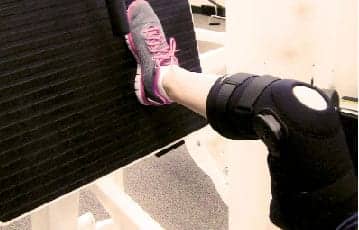In interviews of para-athletes and their support staff regarding diet and nutrition, researchers found a gap between para-athletes’ perceptions and nutritionist’s recommendations for able-bodied athletes. The interviews underlined the barriers para-athletes face, which nutritionists should be aware of when providing nutritional support.
The study was published recently in Nutrients.
Osaka Metropolitan University researchers, Professor Hisayo Yokoyama from the Research Center for Urban Health and Sports, and Specially Appointed Research Associate Miwako Deguchi and Specially Appointed Professor Nobuko Hongu from the Graduate School of Human Life and Ecology, interviewed para-athletes with lower-limb disabilities about diet and nutrition. The survey included six active para-athletes participating in international-level competitions and an able-bodied para-sport trainer to clarify challenges that para-athletes face in sports nutrition.
While athletes without disabilities tend to emphasize intake of carbohydrates, proteins, and fats as energy sources, almost all subjects interviewed indicated that a diet rich in vegetables and unbiased in terms of nutritional balance was ideal for improving athletic performance. This is thought to be out of a desire to avoid gaining weight which limits wheelchair operation in daily life and to prevent lifestyle-related diseases, resulting in hesitancy surrounding food intake, rather than focusing on diets that provide nutritional benefits for improving athletic performance.
The research team found that diets that para-athletes considered ideal were not necessarily optimal for improving athletic performance, and even when they understood what a truly optimal diet was various characteristics of their disabilities imposed barriers to changing their diet.
“The results of this research will help bridge the perception gap between para-athletes and support staff, including nutritionists and trainers, to facilitate cooperation between them. It is important for nutritionists to fully understand the concerns and struggles of para-athletes to form good partnerships with them and support them in sports nutrition,” Professor Yokoyama concluded.
[Source(s): Osaka Metropolitan University, EurekAlert; Photo Credit: Osaka Metropolitan University]





